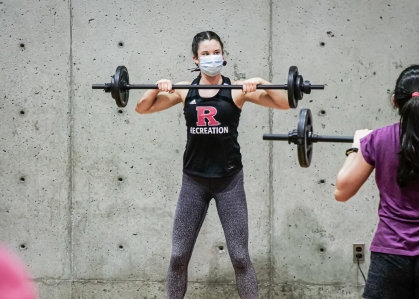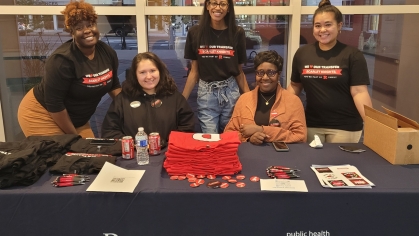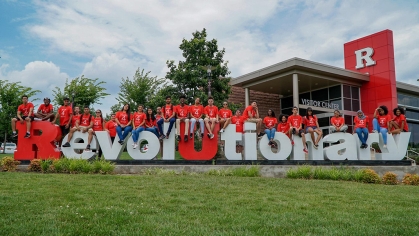How Rutgers University–New Brunswick Recreation Supported Students’ Physical and Mental Wellness in a Time of Crisis

In March of 2020, as part of its response to the COVID-19 pandemic, Rutgers University closed its physical classrooms and facilities, transitioning to a fully remote environment. Rutgers Recreation, like other departments at Student Affairs and Rutgers University, had to transition to the new normal with a variety of programs, initiatives, and accommodations, according to Bethan Wittig, Fitness Coordinator with Recreation.
Wittig listed some of the ways Rutgers Recreation was able to make necessary accommodations for students, such as developing an on-demand library of exercises accessible through YouTube and its website, scheduling free virtual fitness and wellness classes daily through Zoom, and adapting The Rutgers Big Chill Charity 5K—a near 20-year tradition at Rutgers—to be held virtually.
Recreation also transitioned a variety of in-person services to online platforms, including personal training, Exercise is Medicine® coaching, and Wellness-on-the-Go, a service that brings fitness classes and wellness programs to Rutgers groups. Additionally, Recreation also offered professional development and employment opportunities for students.
“By continuing many of its programs, Recreation encouraged physical and mental wellness, areas weakened by the stress of uncertainty during the pandemic, while supporting students’ financial wellness through employment opportunities,” said Wittig.
According to Wittig, Recreation was also responsible for encouraging academic success amongst students as a result of their programming.
“Recreation gave students who sat in front of a computer all day the motivation and access to live and on-demand fitness classes,” she said. “Studies have shown that students who exercise and maintain a daily fitness routine have better overall physical and mental health, as well as higher GPAs and graduation rates.”
These resources were crucial during the pandemic, as a plethora of physical health and wellness problems emerged in the remote-learning atmosphere. One unfortunate consequence of the situation was that students were moving much less, especially in the colder months.
Rutgers Recreation responded to this situation by offering a step challenge that motivated students with prizes and accolades, as well as through its live virtual fitness classes and Wellness-on-the-Go programs. With these resources, participants also had the opportunity to see friends, a familiar instructor, or other people in the Rutgers community.
By continuing many of its programs, Recreation encouraged physical and mental wellness, areas weakened by the stress of uncertainty during the pandemic, while supporting students’ financial wellness through employment opportunities.
Bethan Wittig
Fitness Coordinator with Recreation
During the pandemic, Recreation also made efforts to collaborate with other departments in Student Affairs. With the knowledge that food insecurity had been exacerbated by the pandemic, Recreation came to the aid of the Rutgers Student Food Pantry with over $17,000 in donations from the generous participants, donors, and sponsors of the Rutgers Big Chill Virtual 5K.
Recreation also developed fosters wellness in its own team by encouraging staff to keep a positive attitude, take time for self-care, and exercise. Beyond that, though, Recreation also has services for Student Affairs professionals.
“We create fun and enjoyable activities for everyone to take part in and promote health and wellness events and programs to all professional staff in the Division of Student Affairs through our Virtual Wellness-on-the-Go offerings,” said Wittig.
During the period of remote instruction, Rutgers Recreation continued their mission of fostering health and wellness to the Rutgers community and has continued to do so with the university’s return to campus in 2021 and 2022.
Financial support from alumni, parents, and friends helps us create the innovative learning opportunities that challenge students to be their best at Rutgers and beyond.
About the Division of Student Affairs at Rutgers–New Brunswick
The Division of Student Affairs is committed to facilitating interactions that promote students' success and their personal and professional development. Learn more about our mission.



